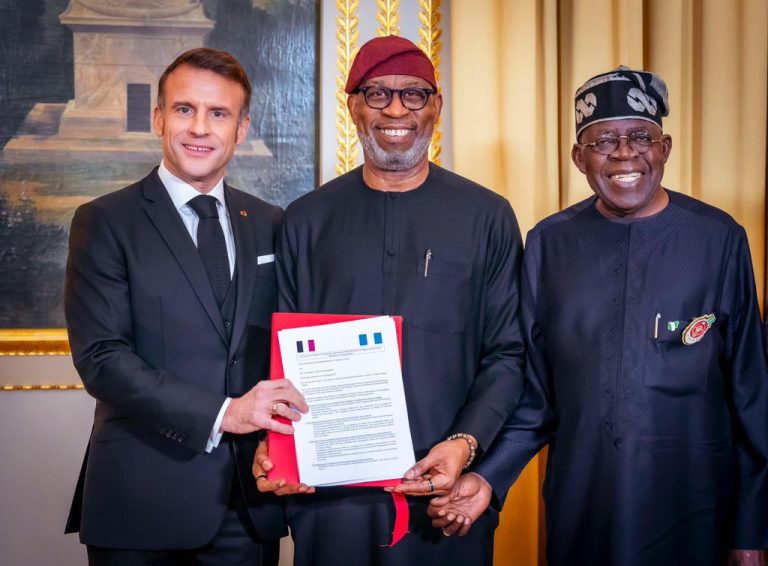As speculations mounted in some quarters regarding the MoU signed between Nigeria and France in the area of solid minerals development, the Presidency has come out to clarify that France is not taking over Nigeria’s mining sector, solid minerals or security rights.
During President Bola Tinubu’s recent state visit to France, Nigeria and France signed a memorandum of understanding (MoU) to develop joint projects to promote and diversify both countries’ critical minerals value chains in the solid minerals sector. This sparked off the speculations.
However, the Special Adviser to the President on Media and Public Communication, Sunday Dare, in a statement issued on X on Thursday, explained that while Nigeria would comply with international global standards upon which MoUs are based, it did not sign away mining rights.
In the statement, titled “The Facts: Nigeria-France MOU on Critical Minerals”, Dare stated that, “the concept that MOUs are not legally binding allows for either party to exit the agreement or not meet the requirements outlined in the agreement without consequences.”
He went further to say, “the French are not taking over. Nowhere in the document was it agreed or suggested that Nigeria has signed away Mining Rights to the French, nor does it connote anything against Nigeria’s Economic and Security interest as being maliciously circulated. No.”
“Nigeria and France have agreed to develop joint projects to promote and diversify the critical minerals value chain in the solid minerals sector of both countries.
“Critical minerals such as copper, lithium, nickel, cobalt and rare earth elements are essential to clean energy technologies.
“In the Memorandum of Understanding signed by both countries on the sidelines of the official visit to France by President Bola Ahmed Tinubu recently, both countries agreed to collaborate on research, training and Franco-Nigerian students exchanges for knowledge and skills transfer.
“A key component of the Memorandum of Understanding is the promotion of sustainable mining activities by executing projects and programmes which reduce the environmental impact of mining on carbon emissions, water consumption and climate change.
“It also includes the establishment of joint extractive and processing projects through co-financing by public and private entities to diversify and secure the supply of critical minerals and decarbonise energy projects critical to the value chain.
“Both agreed to adopt international best practices in the execution of programmes and projects to improve the conditions of the local populace affected by mining and ensure transparency.
“The MOU is expected to open new opportunities for the remediation of over 2,000 abandoned pits in the country through its plan to intervene in environmental rehabilitation and post-mining projects.
“Through regular bilateral and multilateral training, seminars and events, administrators of institutions in the critical Metals sector are expected to improve their capacity to manage the sector’s value chain,” Dare explained in the statement.

